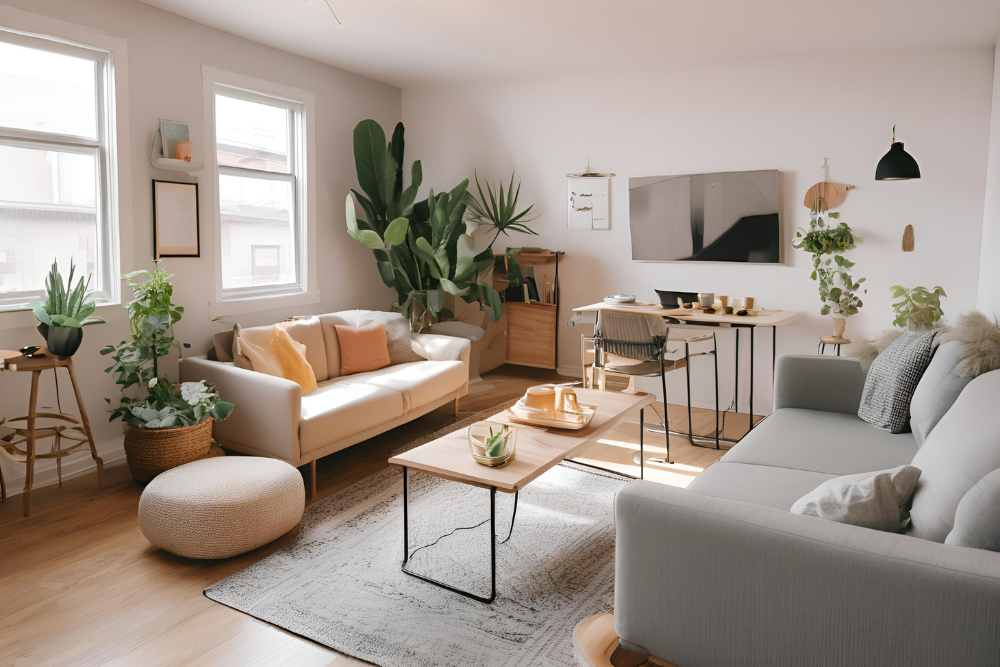Pros and Cons of Living in an Upstairs Apartment
One aspect both renters and owners must weigh is whether their home will be upstairs or downstairs. An upstairs apartment has benefits along with disadvantages. Knowing both sides of the story will make for a more prudent decision which will fit your preferences and lifestyle.
|
|
🏡 Smart Home Solutions
These top-rated products solve common household challenges. All selections are based on verified customer reviews and real-world testing.
🔇 Noise Reduction
🏠 Stair-Climbing
🌿 Outdoor Solutions
Disclosure: As an Amazon Associate I earn from qualifying purchases. Prices are accurate as of posting date.
Pros of Living in an Upstairs Apartment
1. Reduced Noise from Upstairs Neighbors
One of the biggest benefits of living in an upstairs apartment is the absence of noise from above. In a downstairs unit, you may hear footsteps, furniture moving, or even appliances running from the unit above. Living upstairs eliminates this issue, providing a quieter and more peaceful environment.
2. Better Views and Natural Light
Upper-level apartments typically offer better views, whether it’s of a city skyline, a garden, or a peaceful suburban street. Additionally, being higher up often means receiving more natural light, which can make your living space feel more open and inviting.
3. Increased Security
Living on an upper floor reduces the likelihood of break-ins, as burglars tend to target ground-level units for easier access. Windows and balconies on upper floors are harder to reach, providing an extra layer of security.
4. Less Pest Intrusion
Ground-level apartments are more susceptible to pests such as insects, rodents, and even unwanted animals. Living in an upstairs apartment decreases the chances of dealing with pests, making it a cleaner and more comfortable living space.
5. Reduced Foot Traffic and Privacy
Being on an upper floor means less foot traffic near your door, resulting in increased privacy and fewer disturbances from people passing by. If you value a quiet, private living environment, an upstairs apartment can be a great option.
6. Better Airflow and Ventilation
Hot air rises, which means upstairs apartments generally benefit from better airflow, especially if windows are strategically placed. This can help improve air circulation and reduce indoor humidity levels, making the apartment feel more comfortable.
7. Increased Property Value (for Homeowners)
If you own a condo or apartment, upper-floor units are often more desirable due to their views, privacy, and security. This can lead to higher property values and a better return on investment if you decide to sell.
8. Better Insulation from Street Noise
Living higher up can minimize exposure to street noise, especially in busy urban areas. The higher the floor, the less likely you are to be disturbed by traffic, pedestrians, or outdoor activities.
Cons of Living in an Upstairs Apartment
1. Climbing Stairs or Relying on Elevators
One of the biggest downsides to an upstairs apartment is the need to climb stairs daily, especially in buildings without elevators. This can be a significant inconvenience, particularly for elderly residents, individuals with mobility issues, or those carrying heavy groceries.
2. Difficult Moving Process
Moving into an upstairs apartment is often more challenging than moving into a ground-floor unit. Carrying furniture and heavy items upstairs requires more effort and can lead to additional moving costs if professional movers charge extra for staircases.
3. Noisy Neighbors Below
While you may not hear upstairs neighbors, those below may complain about noise from your unit. Walking, dropping items, or playing music can be disruptive to those living underneath, which can lead to potential conflicts with neighbors.
4. Limited Accessibility
For individuals with disabilities or mobility restrictions, living in an upstairs apartment without an elevator can be highly inconvenient. Even if you’re currently able-bodied, future injuries or aging could make climbing stairs a challenge.
5. Harder to Evacuate in Emergencies
In case of emergencies such as fires, floods, or other disasters, evacuating from an upper-floor apartment can take longer. Ground-floor units offer quicker and easier escape routes, which can be a critical factor in dangerous situations.
6. Heat Retention in Warmer Months
Since heat rises, upstairs apartments tend to get warmer, especially in summer. This can lead to increased cooling costs and discomfort if the apartment lacks proper ventilation or air conditioning.
7. Limited Outdoor Access
Unlike ground-floor apartments that may have patios, yards, or garden spaces, upper-floor units often only have balconies. This can be a downside for those who enjoy outdoor space for gardening, relaxing, or having pets that need outdoor time.
8. Potential for Higher Utility Bills
Due to increased exposure to the sun and heat retention, upstairs apartments may require more cooling, leading to higher electricity bills. If insulation is poor, it can also impact heating efficiency in the winter months.
9. Carrying Heavy Items is a Challenge
From groceries to furniture, carrying items upstairs can become a tedious task. If an elevator is unavailable or unreliable, this can be a recurring inconvenience in daily life.
Conclusion
Living in an upstairs apartment has its set of advantages, including reduced noise, better views, increased security, and improved privacy. However, it also comes with challenges such as accessibility issues, higher energy costs, and moving difficulties.
Ultimately, the decision depends on your lifestyle and personal preferences. If you prioritize security, privacy, and a peaceful environment, an upstairs apartment may be ideal. However, if accessibility and convenience matter more, a ground-floor unit might be a better choice. Weighing these pros and cons carefully will help you determine the best living situation for your needs.

